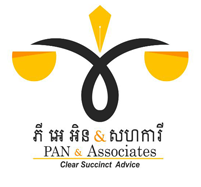A Legal Overview
The age of majority is the legal threshold at which individuals transition from childhood to adulthood. Upon reaching this age, individuals assume legal control over their person, actions, and decisions, terminating parental or guardianship authority.
Cambodia has established the age of majority at eighteen years old. This legal milestone signifies the transition from minor to adult status, granting individuals full legal capacity. Moreover, reaching the age of majority does not inherently equate to mental or physical maturity.
Age of majority
It’s crucial to differentiate the age of majority from other age-related legal benchmarks, such as the age of consent, marriage age, or voting age. These are distinct legal standards with their own specific regulations and consequences.
While attaining the age of majority grants individuals fundamental legal rights, it’s essential to note that additional age-based restrictions may apply to specific activities, such as voting, holding public office, or serving as a judge.
Explanation
The age of majority should not be confused with the broader concept of the “age of license.” While the age of majority signifies full legal adulthood, granting individuals control over their person and affairs, the age of license pertains to specific permissions granted by the government to undertake certain actions, such as driving or voting.
While many age-based permissions or “licenses” correlate with the age of majority, they are distinct legal concepts. For instance, in Cambodia, individuals can obtain a Khmer identity card is at 16, while the voting age is at 18, age to stand for election is at 25, age for Khmer identity card is at 16, age for car driving license is at 18 but age for license for motor bike (less than 120 cc) is at 16.
Emancipation is a legal process that grants minors the status of adulthood before reaching the age of majority. Court approval is typically required, and the grounds for emancipation vary by jurisdiction. Common paths to emancipation include marriage, economic independence, or completing a degree or diploma. In Cambodia, while the general marriageable age is eighteen, exceptions exist for sixteen-year-olds with parental consent.
Cambodia’s legal age of criminal responsibility is eighteen. However, under specific circumstances, individuals aged fourteen or older may face criminal charges.
Our Firm Can Help
At PAN & Associates, our legal team possesses in-depth knowledge of Cambodian law, including matters related to the age of majority. We can provide comprehensive legal advice and representation to individuals and businesses facing age-related legal challenges.

